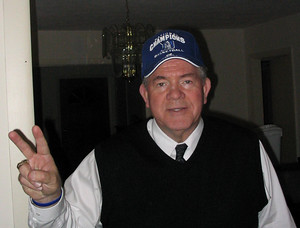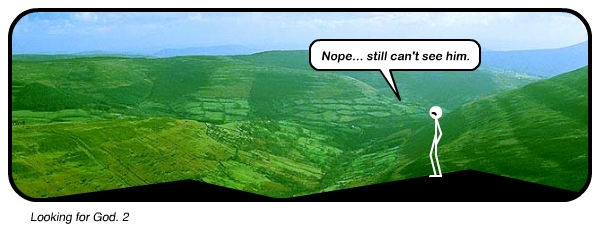One year ago today I was stricken with a very odd (but scary at the time) affliction. I wrote a blog post about it on myspace (this was before I even considered this awesome wordpress blog), and I decided to repost it today on the anniversary of the event. I only did a minimal amount of editing to correct the gross errors from before. I was entertained as I reread it, and my regular readers probably will be too. For many of you it will even be new. Tomorrow I'll give an update on what It is like a full year later.
The Adventures of Jeremy in the Emergency Room: The world’s longest blog post
Prologue: How I got to the ER
On Tuesday October 9th 2007 I developed a headache while crappie fishing with Jack Pate. It seemed like a sinus headache at the time. I took Advil cold & sinus like always, but it didn't go away. I also rode my exercise bike that night, because I've been doing that a lot lately, trying to drop a few lb's since I've never been fatter. The headache never went away. Wednesday I still had it. I worked out like crazy hoping that would make the headache go away, it didn't help. Then on Wednesday night after church I helped this guy move, making for even more exercise. I made a comment about my head hurting and Jack said, "You were complaining about that yesterday." I told him that it is exactly the same headache. On Thursday, I was beginning to get concerned about having the exact same headache for 3 days. Plus, it was worse on Thursday. It is completely localized behind my right ear. Thursday I took a variety of medicines and drank a lot of Mello Yello for the caffeine and tried to sleep it away. (Really I was just sleeping to try to hide from the hurting of my head.) The headache is not that severe, but it is relentless. It's there when I go to bed and when I wake up. Sometimes it throbs and sometimes it is dull. I made up my mind that if I woke up with it on Friday, I would go the doctor.
I don't have a regular doctor so on Friday morning I went to the express care of the Cape Fear Valley Hospital. It opens at noon I was there at 10 till, and was the second one to sign in. I thought I had a sinus infection and that he would give me antibiotics and help me feel better soon, but the PA who saw me said that there was nothing wrong with me, he gave me a shot of Tordol and a prescription for Fioricet and treated me as if I had migraines. He asked me if I was under stress I said no, he continued his course of migraine treatment anyway. He also scheduled me for a head CT on Thursday.
This is the first time I began to freak out a little. I truly considered every horrible possibility, from brain tumor to aneurysm. In case you wondered, I am still fully confident in my salvation in Christ. Even though I seriously considered death I was only reassured of my belief in Him and not the slightest bit afraid of my slightly less hypothetical impending death. Being hypothetically disabled was much more disconcerting.
Part One: Why I went to the ER

The headache medicine that the PA gave me didn't help at all. It made me throw up, but didn't help with the headache. When I kept it down it made me extremely tired. But I was going to just tough it out until my CT on Thursday. Well things changed on Sunday morning. I got up early to make pancakes for the Baptist Men's Breakfast, and at breakfast I noticed that my mouth was weak. It felt like my eggs were going to fall right out as I chewed. By 1 pm I noticed that I couldn't smile fully. The right side of my mouth wouldn't raise all the way. I took a nap, went back to church and taught DT. The youth laughed at my inability to whistle. At the conclusion of church, the pastor named me as a prayer request, and a group of ladies prayed over me as soon as we dismissed. I truly felt loved and ministered to. That feeling was only beginning. After church I was watching TV and playing with my new X-box (an awesome gift I got for pastor appreciation month) and took a break to go to the bathroom. I smiled at myself in the mirror and noticed that my mouth was worse. This was the most nervous I'd been. So I took a picture of myself, sent it to Mom over yahoo messenger, and asked her should I go the the emergency room, cause I can only smile like this. (Just as a quick aside, can you imagine what this would have been like 10 years ago before digital cameras or instant messengers. The internet is awesome sometimes.) This is the pic I took. Mom said to call her, she said I should go the the ER because, "Your face shouldn't be drooping."
Part Two: The Trip and the Waiting Room
I went through a mental list of who should take me to the ER, because I knew I shouldn't drive myself. I decided on Frank Acevedo. Frank is new to our church and will be here for about a year. He was the best candidate because he lives close and his family is back in Tennessee. He said he'd be here in 10 minutes. I got myself ready loaded my pockets with the prescriptions and my phone charger and stuff, and was just about ready when he arrived. On the way to the hospital I called Mom, Granny, Jarred, Pastor Weeks and Brent Highfil. Dad was in Mexico so I didn't even attempt to call him.
When I arrived at the hospital, I went to the check-in desk and told them, "I've have had a headache since Tuesday, and when I smile I look like this." They wrote down "facial drooping." Me and Frank took what seemed like the last 2 seats in the waiting room, and began the long wait. About 20 minutes later, the Pastor arrived and he stayed there nearly all night as well. I was called into the preliminary diagnosis room, and answered a bunch of questions. They took my blood pressure, weighed me, (I reeealy have to lose a lot of weight) <--update-->(I still really need to lose a lot of weight) <--update--> and asked me a bunch of questions. One of the questions they asked was rate your pain on a scale from 1 to 10. All I could think of was this. (The line comes at the 2 minute mark) Which is so funny you have to watch it…now before you continue reading this. What are you waiting for, go ahead watch it. (I just didn't want to get attacked by the guys from the femur ward.) They sent me back to the chairs. We arrived at about 9:45, and slowly watched the room empty out. At 1:15 or so they called me back. Apparently 3½ hours is not all that long to wait at the emergency room. If it had been a stroke, who knows what would have happened.
Part Three: The Exam
They called me back and told me to put on the hospital gown. It was the first time in my life that I've worn one of those. I asked the nurse if I could go to the bathroom before I changed, and she told me to pee in a cup if I was going, "just in case." It's always awkward peeing in a cup, you don't know how much to put in the cup and you don't really have enough hands for the whole operation to go smoothly. But I came out of the bathroom with a cup of pee and changed into the gown with no back in it.
Then came the IV. The IV nurse stabbed the crap out of my left hand, then moved on to my right forearm. She was able to get one syringe of blood, then she moved to my left arm. The left arm hurt the most, but the right arm is much more bruised. She never did get an acceptable stab in, just as another nurse was about to give it a shot, I was moved. A girl was coming in and needed my room for an exam. She was writhing and crying in her bed, I was glad to give her the room. I didn't really want to walk down the hall with my backside hanging out, so they wrapped another gown around me like a cape and I walked down the hall following a nurse who had all my clothes in a yellow bag. They moved me to a trauma room and hooked me to all the machines.
Part Four: My Diagnosis and Relief
A trauma room is exactly what you think of when you think of an emergency room. It is a large room with 3 "rooms" sort-of separated by a curtain. I was in trauma 2. First I'll talk about the diagnosis, then the fun part. Relatively quickly, remember I had been there for four hours already, the doctor came in and saw me. He looked in my ears and then asked me the same questions I'd already answered a hundred times, squeeze his fingers, when did it start, then he said smile, wrinkle your forehead. Then the words I was dying to hear. "You have Bell's Palsy. you haven't had a stroke or anything. We will get a CT to make sure everything is normal, but it will probably go away in a about two weeks. It is probably caused by the ear infection which seems to be pretty severe."
This was an incredible relief. If you have actually been reading this massive article you remember me saying in the prologue that I had considered everything horrible. Now I knew that the headache was actually an earache, and not my brain leaking out. At this point I could relax and enjoy the rest of my experience in the trauma room of the Cape Fear Valley Hospital. They took me next door for a CT, I nearly fell asleep during this part, laying down in a quiet room. But it only lasted about 10 minutes, and was kind of jerky once the machine kicked in. Apparently my CT was fine. You can read about the last part in part 6. Shortly after the head CT the pastor got to go home. Frank stayed around and drove me home.
Part Five: Now Things Get Entertaining
This is the part you have all been waiting for. The trauma room is much more like ER the show than I ever expected. My roommates in trauma 1 & 3 consisted of a lady who had stabbed herself…wait for it...twice, and a man who accidentally shot himself.
First lets talk about Ms. Stabsalot. She was moaning periodically from the time I arrived. Then she would holler for a nurse and ask, "When will I get my pain meds?" The nurse would tell her that the film had to come back. Then at one point she decided that she wasn't going to get satisfaction. So she unplugged all her cables, wrapped up in her bed sheets like a dress and walked out of the room. She was quickly herded in by a nurse and told she couldn't leave because she was a psych patient. She decided then to only go to the bathroom, and came back to her bed, and returned to periodic moaning.
Then in comes Shooter in a wheelchair in real true pain, and clearly in shock. As the doctors questioned him they asked him his name, which I will leave out, and then they asked him where he was when it happened, (less than a mile from my house btw) and how he got shot. He said he dropped his gun (a .22 by the way, does that even count as packing heat?) and it went off. He also said he got rid of the gun, but he gave up his boys that he was with real quick. He was shot in the forearm. The police unwrapped it, and then the nurse pulled the curtain so that I couldn't see what was happening. I could still tell what was happening though because you can hear right through a curtain. They had some difficulty getting him to stay in the bed, and he was repeatedly saying, "I just want this out of me." The nurses wanted him to hold still so that they could give him an IV, pain meds and get an x-ray. They needed to see how the bullet was placed in his arm. As soon as he got the medicine he was a whole different guy, calm and cooperative. The doctor took the bullet out right there in the room.
When Ms. Stabsalot heard this she moaned really loud a few times, hoping to outmoan the shooter. Then the doctor started ripping into her. She said, "I've been waiting hours to get some pain meds and he just rolls right in and gets it."
"He's been shot," said the Dr.
She replied, "But I've been stabbed"
"You stabbed yourself," is the reply.
"So what, I've still been stabbed! Maybe I should have stabbed myself 3 times."
"You are a psych patient and I can't give you pain meds because they might interfere with your other symptoms. We are taking you to a mental institution for a better diagnosis."
This part of the night was truly entertaining and since I was not longer freaking out I just enjoyed the show.
Part Six: Checking Out and Going Home

The doctor said the CT looked fine, he referred me to a neurologist for an MRI "just in case" and gave me antibiotics, antivirals, a roll of tape, instructions on using eye cream and taping my eye shut for bed, and a vicodin, to ease the pain of the earache and help me sleep. Here is me all taped up and ready for bed.
Went to the 24 hour CVS there near the hospital and filled all the scrips. Just as I was walking in the door of the house my alarm was going off, because I had to get up early the morning before. I took the first round of all the pills, ate some peanut butter on toast, took a shower, (but the vicodin was working good by then and I was staggering) taped up my eye and went to bed. Esau spent the first night of his life in the house alone, and seemed to survive it fine. I slept till about 10:30.
Epilogue: Thank You
First of all let me say, when you are single and live 600 or more miles from where your family is, things like this could be extra scary. Then let me say thank you to my church. A major purpose of the church should be fellowship, and fellowship is more than eating together. Fellowship is having genuine concern for others. My church was awesome. I received prayer, and ministry galore. People have volunteered to drive me while I can't see and feed me. For all of you I say. Thank You! You have made it clear that everyone who loves me is not 600 miles away.
Finally, if you have read this whole manifesto-length blog post you deserve congratulations. You should at least comment it so I know I didn't totally waste my time. Also thank you to all the people who prayed for me and ministered to me through this ordeal.
Just in case you are wondering, this post is 2651 words.






 . This book is written around a survey of the unchurched and their views of the church.
. This book is written around a survey of the unchurched and their views of the church.


 For the benefit of my uninformed protestant readers, Lent is a 40 day fast leading up to ressurrection day. (Remember
For the benefit of my uninformed protestant readers, Lent is a 40 day fast leading up to ressurrection day. (Remember  and
and  ) so I won't waste your time here. I will say however, that I use the time and pain that occurs in in a fast to remind me to pray and to meditate on God. For example, if I am fasting for revival I use the hunger pains as a reminder to ask God to bring revival to my life and to my church.
) so I won't waste your time here. I will say however, that I use the time and pain that occurs in in a fast to remind me to pray and to meditate on God. For example, if I am fasting for revival I use the hunger pains as a reminder to ask God to bring revival to my life and to my church. Which of these people is not the star of their own reality show?
Which of these people is not the star of their own reality show?


 Monday night at the 2008 BSCNC featured a commissioning service for 31 IMB missionaries. It began with march in the flags of many countries lined the aisle ways as the missionaries worked their way on stage. Then it concluded with a message from
Monday night at the 2008 BSCNC featured a commissioning service for 31 IMB missionaries. It began with march in the flags of many countries lined the aisle ways as the missionaries worked their way on stage. Then it concluded with a message from 



